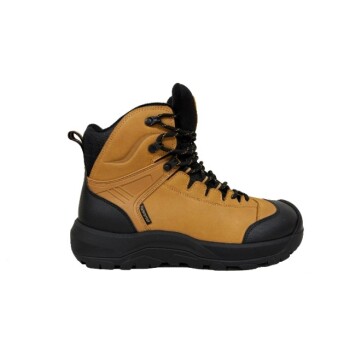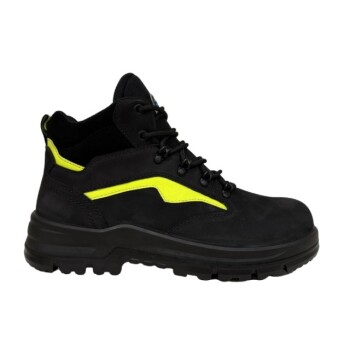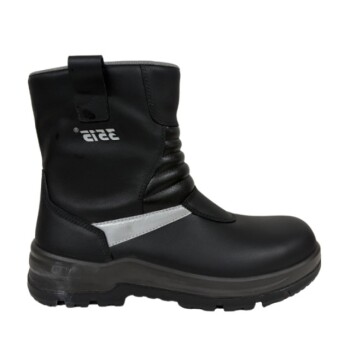From military origins to modern necessity, the Wellington boot has become a uniquely versatile piece of footwear. Today, its common uses span from heavy-duty industrial and agricultural work to casual recreation like gardening, attending music festivals, and simply navigating a rainy day. Its core function is to provide complete waterproof protection in wet or muddy environments.
The Wellington boot's widespread adoption is rooted in a simple but powerful combination: its seamless, waterproof construction offers total protection from the elements, while its slip-on design and easy-to-clean material make it the default choice for any messy environment.
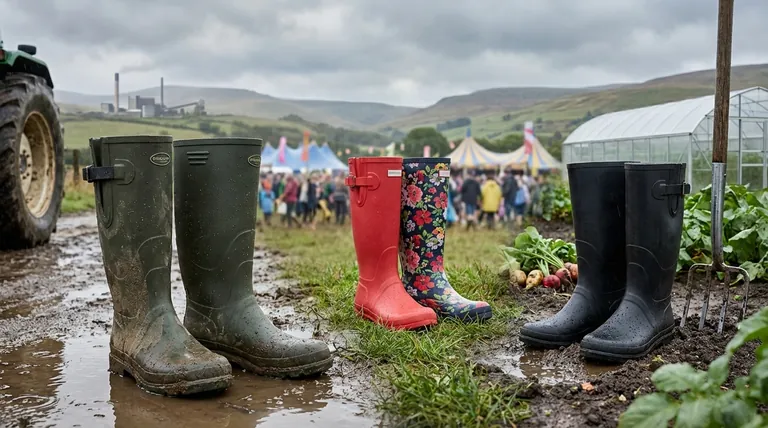
The Foundation: Core Functional Uses
The primary driver for using Wellington boots has always been pure utility. They solve the fundamental problem of keeping feet dry and clean in challenging conditions.
Protection in Agriculture and Industry
In demanding environments, Wellington boots are essential protective equipment. They are a staple on farms for protection against mud and debris.
Specialized industrial versions are often reinforced with steel toe caps for safety. Their seamless rubber or PVC construction also provides resistance to chemicals and other hazards, while non-slip soles make them ideal for crews on fishing boats.
Navigating Wet and Muddy Terrain
This is the classic use case for the Wellington boot. They are the ideal choice for walking on muddy country paths, through wet fields, or across a soggy campground.
They offer complete protection from heavy showers and deep puddles, making them essential for outdoor activities from hunting to simply walking the dog.
Everyday Practicality
The boot's convenience has made it a common sight in daily life. Its simple slip-on, slip-off design is perfect for quick trips into the garden or for rainy day school runs.
Commuters in areas with frequent rainfall often rely on them to arrive at their destination with dry feet.
The Evolution: From Utility to Lifestyle
Beyond their purely functional roles, Wellington boots have been adopted as a cultural and fashion staple, signifying a connection to a particular lifestyle.
A Staple at Festivals and Events
Outdoor music festivals are now synonymous with Wellington boots. Given the high probability of muddy fields, they have become the unofficial uniform for festival-goers who want to remain comfortable and clean.
This has driven a market for fashionable designs, colors, and patterns, turning a practical item into a style statement.
A Symbol of Countryside Leisure
The Wellington boot is also an emblem of rural and countryside life. It's the footwear of choice for standing on the touchline at a weekend sports match, taking a casual stroll through the woods, or simply enjoying the outdoors in comfort.
Key Trade-offs and Considerations
While incredibly useful, the design of the Wellington boot comes with inherent trade-offs that are important to understand.
Limited Breathability
The very feature that makes them waterproof—a seamless rubber or PVC shell—also means they are not breathable. In warm weather or during strenuous activity, this can lead to uncomfortable, sweaty feet.
Lack of Ankle Support
The laceless, slip-on design offers convenience but provides minimal ankle support compared to a traditional hiking or work boot. This makes them less suitable for navigating highly uneven or treacherous terrain where a twisted ankle is a risk.
Insulation Varies Widely
A standard Wellington boot offers little to no insulation against the cold. For winter use or activities in the snow, it is critical to either use thick thermal socks or purchase a model specifically designed with neoprene or fleece lining for warmth.
Making the Right Choice for Your Goal
To select the right boot, you must first identify its primary purpose.
- If your primary focus is heavy-duty work: Seek out industrial-grade boots with features like reinforced steel toes, non-slip soles, and enhanced chemical resistance.
- If your primary focus is frequent outdoor leisure: A standard, comfortable pair is ideal for everything from gardening to dog walking in the rain.
- If your primary focus is style for events: Consider fashion-forward designs and colors that are popular at festivals and for casual wear.
- If your primary focus is cold weather: Ensure you choose an insulated model or plan to pair standard boots with quality thermal socks.
Ultimately, the Wellington boot's enduring appeal lies in its simple, effective solution to the universal problem of keeping your feet clean and dry.
Summary Table:
| Primary Use Case | Key Features | Ideal For |
|---|---|---|
| Industrial & Agricultural Work | Steel toe caps, chemical resistance, non-slip soles | Farmers, construction crews, factory workers |
| Outdoor Leisure & Gardening | Waterproof, easy to clean, slip-on design | Gardeners, dog walkers, hikers on muddy paths |
| Festivals & Casual Fashion | Stylish designs, colors, patterns | Music festival-goers, casual outdoor events |
| Everyday Rainwear | Convenient, fully waterproof | Commuters, school runs, rainy day activities |
Need High-Quality Wellington Boots for Your Business?
As a large-scale manufacturer, 3515 produces a comprehensive range of durable and stylish Wellington boots for distributors, brand owners, and bulk clients. Whether you need industrial-grade safety boots, fashionable designs for retail, or reliable waterproof footwear for various markets, we have the production capabilities to meet your needs.
Contact us today to discuss your requirements and get a competitive quote!
Visual Guide
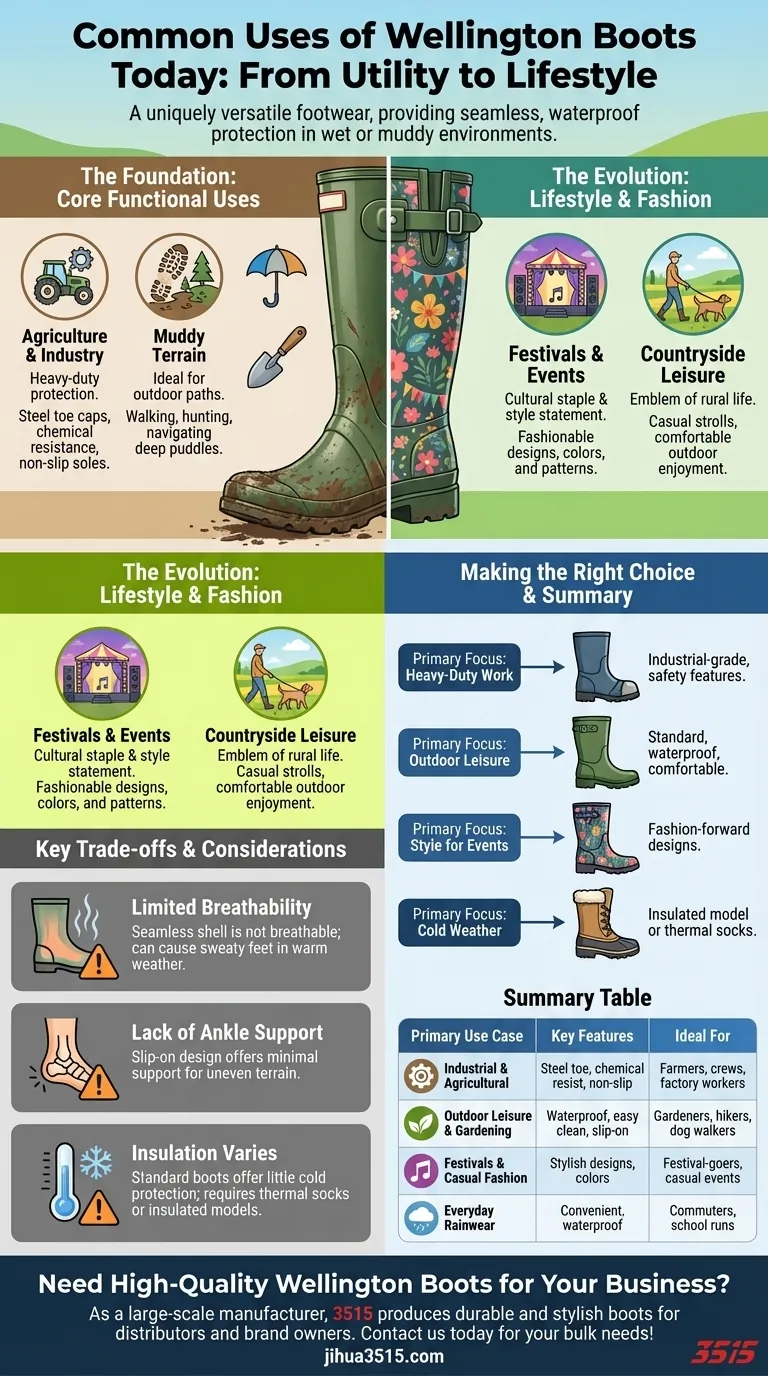
Related Products
- Safety Footwear Wholesale Manufacturer for Custom OEM/ODM Production
- Wholesale Safety Footwear Manufacturer for Bulk & Custom OEM Orders
- Premium Flame-Retardant Waterproof Safety Boots and Shoes
- Premium Insulated Safety Boots and Shoes for Wholesale & Bulk Orders
- Wholesale Premium Waterproof Nubuck Safety Shoes Boots
People Also Ask
- Why are Wellington boots considered a great footwear choice? Unmatched Waterproof Protection for Tough Conditions
- What should be considered when selecting wellington boots for dog walking? Find Your Perfect Fit for All-Weather Walks
- Do Wellington boots stretch over time? The Truth About Fit and Comfort
- How is the steel sole added to PVC rain boots? It's Molded In for Maximum Safety
- What are the drawbacks of rubber shoes? The Hidden Costs of Waterproof Footwear
- What are the liner materials for rain boots? Cotton vs. Blends for Comfort & Durability
- How do safety wellington boots differ from standard wellington boots? A Guide to Industrial Footwear Protection
- How do natural rubber boots adapt to the wearer's foot? Discover the Secret to a Personalized Fit



